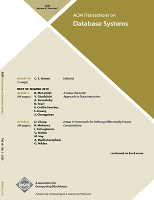
ACM TRANSACTIONS ON DATABASE SYSTEMS
Scope & Guideline
Exploring the Depths of Database Knowledge
Introduction
Aims and Scopes
- Database Query Processing and Optimization:
Research in this area involves developing efficient algorithms and techniques for optimizing database queries, including SQL optimization, query containment, and advanced indexing methods. - Data Provenance and Integrity:
This scope includes studies on tracking the lineage of data, ensuring data integrity, and implementing systems that support data repair and recovery. - Graph Databases and Entity Linking:
Focuses on the challenges and methodologies related to graph databases, including the linking of entities across various data representations and enhancing graph traversal and querying. - Big Data Management and Performance Tuning:
Explores strategies for managing large-scale data, including cost-based data prefetching, scheduling in big data platforms, and performance optimization in distributed database systems. - Emerging Data Management Techniques:
This includes innovative approaches like reversible database watermarking, differential privacy in cloud databases, and model counting for data estimation. - Machine Learning and Database Integration:
Integration of machine learning techniques within database systems to improve query prediction, data cleaning, and overall database management efficiency.
Trending and Emerging
- Data Science and Provenance:
There is an increasing emphasis on supporting data science initiatives through better data provenance mechanisms, which are crucial for transparency and reproducibility in data analysis. - Graph and Multi-Model Databases:
Research into graph databases and multi-model systems is trending, as they offer flexible data representation and efficient querying capabilities for complex relationships. - Privacy-Preserving Data Management:
With growing concerns over data privacy, methodologies integrating differential privacy and secure data sharing techniques are becoming more prevalent. - Machine Learning in Databases:
The integration of machine learning techniques to enhance database functionalities, such as query prediction and data cleaning, is emerging as a significant trend. - Big Data and Cloud Computing:
Research focusing on the management of big data within cloud environments continues to grow, addressing challenges related to storage, access, and performance in distributed systems.
Declining or Waning
- Traditional Transaction Management:
The focus on classical transaction models and isolation levels has diminished, as newer methodologies and architectures for application-level transactions gain traction. - Basic Relational Database Techniques:
Fundamental techniques such as basic SQL operations and traditional relational database design principles are seeing less emphasis, as researchers explore more complex and modern approaches. - Static Data Management:
Research centered around static data models and traditional data storage has decreased, with a shift towards dynamic, real-time data processing and management solutions.
Similar Journals
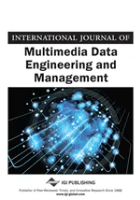
International Journal of Multimedia Data Engineering & Management
Bridging Theory and Practice in Multimedia TechnologiesInternational Journal of Multimedia Data Engineering & Management, published by IGI Global, is a pivotal platform for the dissemination of knowledge in the fields of multimedia data engineering, information management, and technology-driven methodologies. With a keen emphasis on exploring innovative approaches to data management, this journal engages researchers, professionals, and students interested in the rapidly evolving digital landscape. Although currently not designated as Open Access, the journal is accessible through institutional subscriptions, fostering rigorous academic dialogue and collaboration. The ISSN for this esteemed publication is 1947-8534 (E-ISSN: 1947-8542), ensuring its global reach and recognition within the scholarly community. By bridging theoretical perspectives with practical applications, the International Journal of Multimedia Data Engineering & Management supports ongoing advancements and drives impactful research in multimedia technologies.
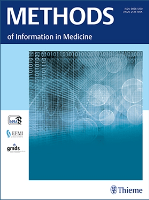
METHODS OF INFORMATION IN MEDICINE
Advancing Nursing and Health Informatics for a Healthier Tomorrow.METHODS OF INFORMATION IN MEDICINE, published by Georg Thieme Verlag KG, stands at the forefront of medical knowledge dissemination, pushing the boundaries of Advanced and Specialized Nursing, Health Informatics, and Health Information Management. Established in 1962, this prestigious journal has continuously evolved to address the dynamic landscape of healthcare and information technology, aiming to bridge the gap between clinical practice and innovative information technologies. With a robust impact factor reflected in its 2023 Scopus rankings, where it holds a commendable position in Q1 for Advanced Nursing, it serves as an invaluable resource for researchers, practitioners, and students alike. While it maintains a subscription-based access model, the journal fosters the exchange of pioneering methodologies and transformative ideas that are crucial for advancing healthcare delivery and improving patient outcomes. Explore the latest research, expert insights, and cutting-edge developments that solidify the journal’s role as a leader in the interdisciplinary approach to medicine and information systems.

International Arab Journal of Information Technology
Advancing Knowledge in Information TechnologyWelcome to the International Arab Journal of Information Technology, a prestigious publication under the aegis of ZARKA PRIVATE UNIVERSITY in Jordan, dedicated to advancing the field of Information Technology. First established in 2008, this journal has made significant strides in disseminating high-quality research, achieving an impressive Q2 ranking in Computer Science (miscellaneous) and securing a notable 57th percentile position in the Scopus rankings. With a comprehensive scope encompassing various sub-disciplines of computer science, the journal is committed to promoting scholarly dialogue and innovation among researchers, professionals, and students. While currently operating as a subscription-only journal, it remains a vital resource for the academic community seeking to explore the latest trends and advancements in technology. The International Arab Journal of Information Technology is not only a platform for original research but also a vibrant hub for ideas that shape the technological landscape of the Arab region and beyond.

Foundations and Trends in Databases
Shaping the Landscape of Database TechnologiesFoundations and Trends in Databases is a prestigious journal published by NOW PUBLISHERS INC, focusing on the dynamic field of database research. With an ISSN of 1931-7883 and an E-ISSN of 1931-7891, this journal has solidified its reputation as a leading publication in computer science, attaining a remarkable Q1 ranking in the Computer Science (miscellaneous) category for 2023. Spanning various converged years since its inception in 2007, the journal aims to provide comprehensive reviews and insights that drive forward the understanding of databases and their numerous applications. Although it operates under a subscription model, the journal’s release of high-impact, well-cited articles positions it as an essential resource for researchers, professionals, and students keen on exploring the latest advancements and challenges in database technologies. With a Scopus rank of #22/232 in General Computer Science, this journal not only showcases innovative research but also facilitates a deeper discourse in the thriving world of data management.
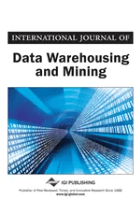
International Journal of Data Warehousing and Mining
Elevating Standards in Data Research ExcellenceInternational Journal of Data Warehousing and Mining, published by IGI Global, is a vital resource in the field of data management and analytics, catering to researchers, professionals, and students alike. With ISSN 1548-3924 and E-ISSN 1548-3932, this journal has been at the forefront of disseminating pioneering research since its inception in 2005 and will continue to do so through 2024. Despite its current categorization in the Q4 quartile for Hardware and Architecture as well as Software, and its Scopus rankings, the journal aims to foster innovation within the domains of data warehousing, data mining, and their applications across various sectors. The absence of an open access option does not diminish its significance; rather, it ensures that the journal maintains rigorous peer-review standards, providing high-quality research outputs that contribute to ongoing discussions and advancements within the field. Researchers and practitioners looking to stay updated on the latest trends and methodologies will find the International Journal of Data Warehousing and Mining an indispensable tool in their academic and professional endeavors.
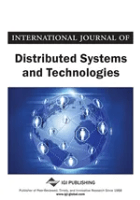
International Journal of Distributed Systems and Technologies
Exploring the Frontiers of Distributed Technologies.Welcome to the International Journal of Distributed Systems and Technologies, a prominent academic platform published by IGI Global dedicated to advancing the field of distributed systems and technologies. With an ISSN of 1947-3532 and an E-ISSN of 1947-3540, this journal, established in 2010 and continuing through 2024, offers a unique venue for researchers, professionals, and students to disseminate their findings in the realms of computer networks, communications, hardware, and architecture. Despite its current placement in the Q4 quartile for both computer networks and communications and hardware and architecture categories in 2023, the journal is committed to fostering innovative solutions and interdisciplinary collaboration that can drive future advancements. Although not open access, contributions to this journal not only receive rigorous peer review but also have the potential to significantly impact the community, underscored by a focus on applicable research that addresses the emerging challenges in technology. As part of a rich repository, the journal invites you to explore its latest issues and join in shaping the future of distributed systems.
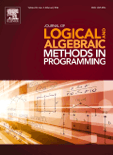
Journal of Logical and Algebraic Methods in Programming
Pioneering Research in Logical and Algebraic Programming Methods.The Journal of Logical and Algebraic Methods in Programming (ISSN: 2352-2208, E-ISSN: 2352-2216) is a prestigious publication by Elsevier Science Inc, dedicated to advancing the fields of computational theory, programming logic, and mathematical methodologies. Esteemed in its commitment to high-quality research, this journal holds a Q2 ranking in 2023 for Computational Theory and Mathematics, and is recognized in various other disciplines including Logic and Software Studies. The journal’s open access policy enhances its visibility and accessibility, ensuring that cutting-edge research reaches a wider audience of researchers, professionals, and students. With an impressive convergence timeline from 2014 to 2025, it is a vital resource for those seeking to explore innovative algorithms and their applications in diverse areas of informatics. The Journal of Logical and Algebraic Methods in Programming represents a unique intersection of logic, mathematics, and software, carving a significant place in the scholarly discourse of theoretical computer science.
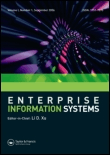
Enterprise Information Systems
Navigating the Evolving World of Information Systems.Enterprise Information Systems, published by Taylor & Francis Ltd, is a prestigious academic journal dedicated to the dynamic field of information systems, emphasizing the intersection of technology and business processes. With a notable impact factor reflecting its significance in the scholarly community, the journal ranks in the Q2 category for Computer Science Applications and Q1 for Information Systems and Management as of 2023. Covering a broad scope from theoretical foundations to practical implementations, this journal serves as a crucial platform for disseminating cutting-edge research that enhances understanding of enterprise systems and their effective integration within organizations. Researchers, professionals, and students will find valuable insights in its pages, with contributions that shape the future of enterprise information systems. Established in 2007 and continuing through 2024, Enterprise Information Systems is essential for anyone looking to stay at the forefront of trends and advancements in this evolving field.
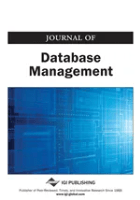
JOURNAL OF DATABASE MANAGEMENT
Empowering Research in Information SystemsJOURNAL OF DATABASE MANAGEMENT, published by IGI GLOBAL, stands at the forefront of research in the fields of Information Systems, Hardware and Architecture, and Software, making it an essential resource for researchers, professionals, and students alike. With an ISSN of 1063-8016 and an E-ISSN of 1533-8010, the journal has established a significant impact in its domain, achieving a Q2 ranking in Information Systems and Q3 in both Hardware and Architecture and Software as of 2023. This reflects its commitment to disseminating high-quality research and developments within the evolving landscape of database management. The journal, which spans a wide array of topics from theoretical frameworks to practical applications, encourages contributions that not only advance academic discourse but also address real-world challenges. Although not open access, its rigorous peer-review process ensures the publication of impactful and credible content. With converged years from 2003 to 2024, it continues to provide a robust platform for scholarly communication, facilitating the exchange of innovative ideas and fostering academic growth in a critical area of computer science.

Internet Technology Letters
Transforming Ideas into Impactful Technologies.Internet Technology Letters, published by John Wiley & Sons Ltd, is a dynamic and rapidly evolving journal that focuses on the innovative applications and developments within the realms of Artificial Intelligence, Computer Networks and Communications, Information Systems, and Software. With its E-ISSN 2476-1508 and a defined convergence period from 2018 to 2024, this journal seeks to address emerging trends and critical challenges confronting the digital landscape today. Recognized in the Q3 quartile range across multiple computer science categories in 2023, it serves as a valuable resource for researchers, professionals, and students seeking to advance their knowledge and stay updated on significant technological advancements. While currently not an open-access journal, Internet Technology Letters holds a prominent position on platforms like Scopus, ranked within the middle percentiles, reflecting its contribution to the academic community. The journal aims to foster connectivity between academia and industry, encouraging submissions that promote interdisciplinary collaboration and innovation. By creating a platform for sharing groundbreaking research, Internet Technology Letters plays a crucial role in shaping future technological landscapes.